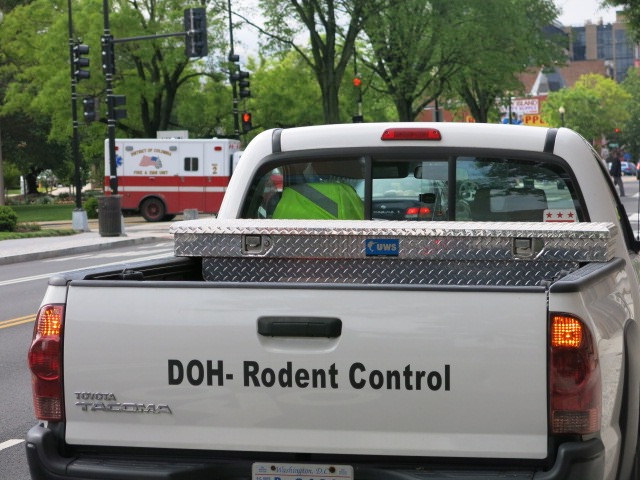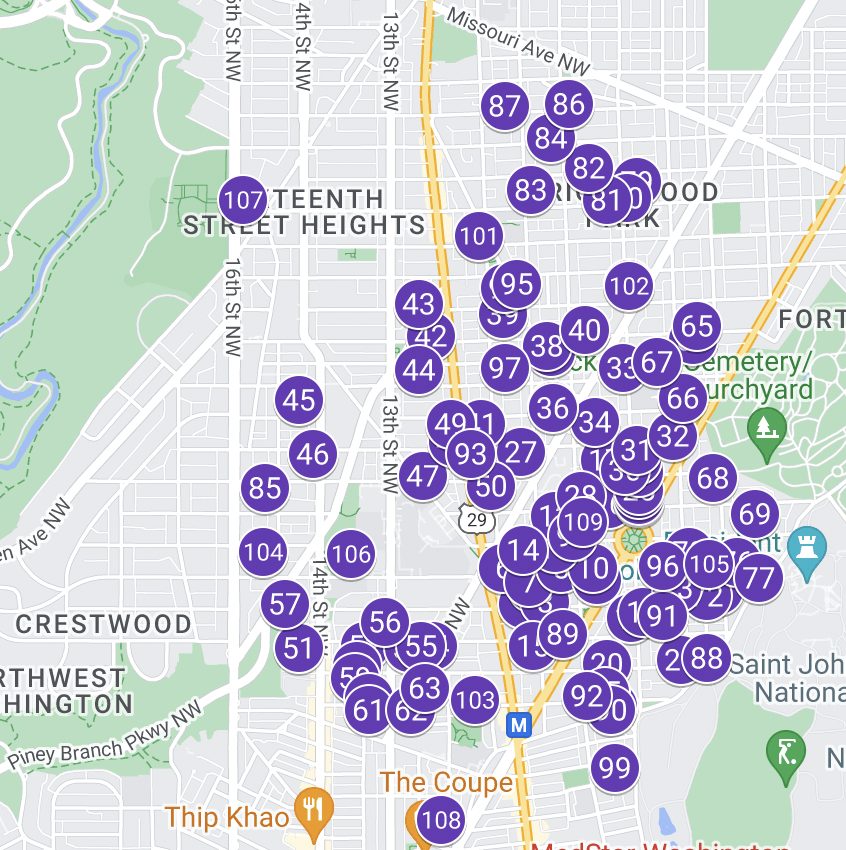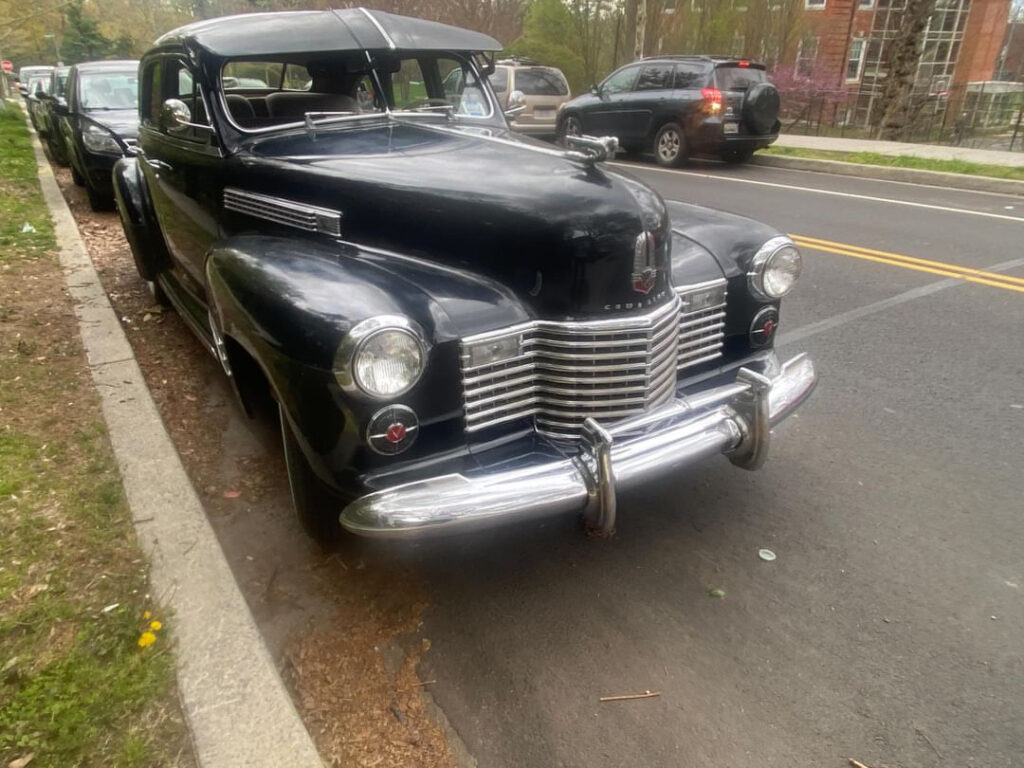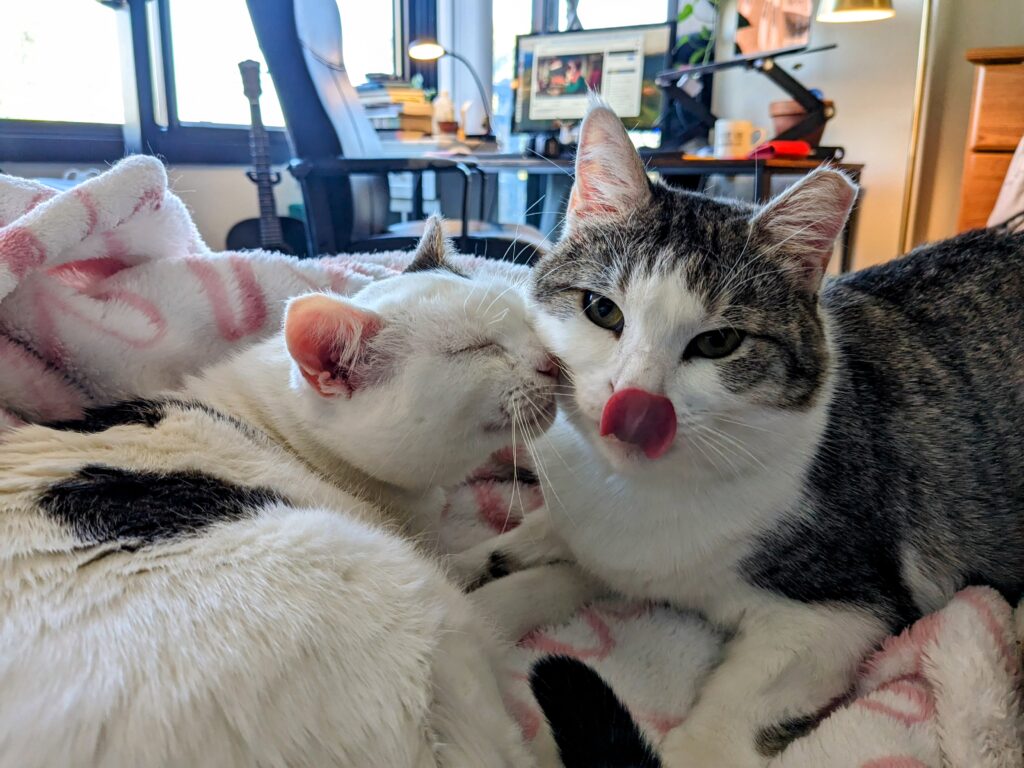
From the Mayor’s Office:
“Today, as part of Back to Basics DC, Mayor Bowser highlighted three District projects aimed at decreasing the rodent population in Washington, DC. The Mayor was joined at the announcement by the Director of the Department of Health Dr. LaQuandra Nesbitt, Chief Technology Officer Archana Vemulapalli, representatives from the Department of Public Works, and community members.
“One of the most important ways we are moving DC forward is by investing in initiatives and technology that make our city healthier and cleaner,” said Mayor Bowser. “We are taking a comprehensive and 21st century approach to an old problem, and we ask that the community continue to help us by reporting rodent issues to 311. Working together, we can reduce waste and keep our streets clean.”
Because most rodent activity stems from inappropriately stored garbage, the District’s rat abatement projects focus on improving how the city, businesses, and residents manage trash. The efforts bring together resources from the Department of Health (DOH), the Department of Public Works (DPW), the Office of Unified Communications (OUC), the Office of the Chief Technology Officer (OCTO), and the Department of Small and Local Business Development (DSLBD).
Earlier this month, DSLBD launched the Commercial Waste Compactor Grant, which offers up to $13,500 for qualified DC businesses to purchase or lease a commercial compactor for their trash, recyclables, or compost. The grant program runs through September and could help over 60 businesses reduce rodent activity by using sealed, rodent-proof compactors. More information about the grant program is available at dslbd.dc.gov/compactor.
In addition, DOH is working closely with DPW and OCTO to strategically deploy 25 solar trash cans and 400 smart litter bins in rat hotspots around DC. The solar trash cans, which are enclosed and rat proof, have solar panels built into them, allowing them to compact trash without being connected to the electrical grid. Solar trash cans have already been installed on Barrack’s Row, Freedom Plaza, and Indiana Avenue, NW. The smart litter bins are trash cans equipped with a sensor that monitors in real time the amount of waste in a bin, the weight of the waste, and whether someone suddenly added large amounts of waste. The sensors then relay this data to a cloud-based web service used by DPW. The web service compiles the data into a map of every sensor-equipped bin in the city, showing which bins are ready for pickup. The data collected will enable DPW to better mobilize crews for pick-up and improve route and bin deployment efficiency.
“The Department of Health takes rodents very seriously and hears the concerns of residents loud and clear,” said Dr. Nesbitt. “We have a team of rodent experts who conduct inspections and extermination activities across the city, and they rely on the city’s businesses and residents to alert them to problem areas. We appreciate the community’s assistance with our rat abatement efforts, and we ask that people continue to report rodent issues to 311.”
DC’s rodent population is believed to have risen in recent years as a result of warmer winters. Last year, the number of 311 requests for rodent abatement increased by 65 percent from 2,300 in 2015 to more than 3,500 in 2016. The District takes a comprehensive approach to rodent control that includes community outreach, surveys, abatement, enforcement and cooperation with other DC agencies. he city deploys teams of rodent control experts who target pests on public property, and will also treat private property if residents obtain signed petitions.
The Mayor also announced the following ways residents can help with rat abatement:
store garbage in metal or heavy plastic containers with tight-fitting lids;
place trash outside shortly before pickup, instead of days in advance;
remove weeds and debris near buildings and in yards where rats can easily hide;
store food that has been removed from its original packaging in metal, glass, or heavy-duty plastic containers with tight fitting lids,
remove uneaten pet food and store pet food in secure containers; and
report rodent issues in your neighborhood, by calling or texting 311.”
Recent Stories

Photo by LaTur Ed. Note: If this was you, please email [email protected] so I can put you in touch with OP. “Dear PoPville, Looking for a Quincy that was at…

For many remote workers, a messy home is distracting.
You’re getting pulled into meetings, and your unread emails keep ticking up. But you can’t focus because pet hair tumbleweeds keep floating across the floor, your desk has a fine layer of dust and you keep your video off in meetings so no one sees the chaos behind you.
It’s no secret a dirty home is distracting and even adds stress to your life. And who has the energy to clean after work? That’s why it’s smart to enlist the help of professionals, like Well-Paid Maids.

Unlock Peace of Mind for Your Family! Join our FREE Estate Planning Webinar for Parents.
🗓️ Date: April 25, 2024
🕗 Time: 8:00 p.m.
PowerPoint Party in Adams Morgan
Make a funny PowerPoint, all the cool kids in DC are doing it!
Make a 5 minute or less PowerPoint presentation on whatever you want!• Defend your unpopular opinions!
NoMa Farmers Market at Third Street
The NoMa Farmers Market is returning for its third season in an exciting new location! This season, we’re expanding and relocating from Alethia Tanner Park to Third Street between N and M Streets NE at the nexus of NoMa and






